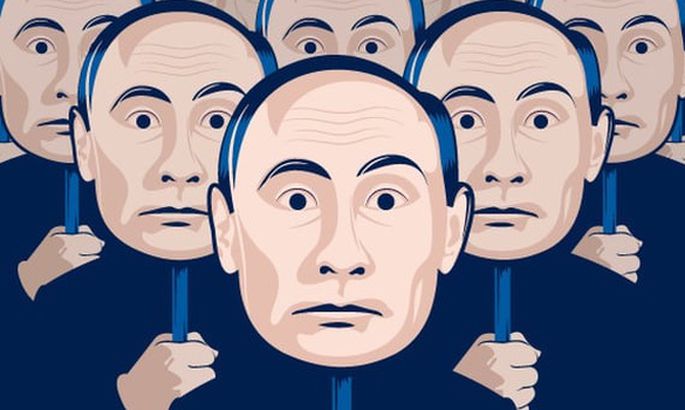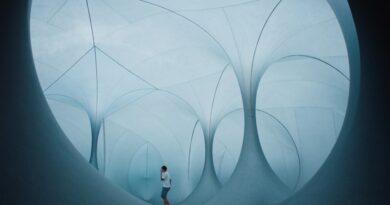Putin’s Witnesses: the Rise of a Sovereign Ruler
The documentary Putin’s Witnesses (Svideteli Putina) by the Ukrainian-born director Vitaly Mansky won the Grand Prix of the FIPADOC (Festival International Documentaire), which takes place every year in the city of Biarrizt, on the Atlantic coast of France. It is a co-production between Studio Vertov (Latvia), Golden Egg (Switzerland) and Hypermarket Film (Czech Republic).
The director has decided to live in exile in Latvia for his critical stance towards the Russian government and is known abroad for his 2015 documentary Under the Sun (V luchakh solnca) in which his camera follows for a whole year the life of a family in Pyongyang, the capital of North Korea.
His latest work on Putin is of great value, because it provides remarkable materials for historians from the personal archive of the Russian documentary filmmaker, who was able to follow the lives of his country’s leading political actors at the beginning of the new century as official cameraman of the Russian state television. In addition to Vladimir Putin, the documentarian interviews a skeptical Mikhail Gorbachev and the previous president Boris Yeltsin, who places all his trust in the candidate Putin, as representative of the process of democratization of Russia. Soon Yeltsin distances himself from Putin, because of the “red” methods of the new elected president, who took office as interim after the resignation of Yeltsin, when he was still premier.
The “American-style” economic development model advocated by Yeltsin would never take root in a country accustomed to authoritarianism and the repression of individualism. To contemporary viewers Yeltsin seems very naive in front of Mansky’s camera, when he tells about Putin as reformer of Russia, the one who would allow the freedom of the press. Freedom, a word that is often repeated in the luxurious government-owned mansion, where Yeltsin spent his first days of retirement. All the members of his family are gathered in front of the television to follow the elections of March 26, 2000. Everyone is rooting for Putin, even Yeltsin’s nephew has been well indoctrinated, playing with his little finger in his nose. The champagne is uncorked when the reading of the official data starts and the victory of the candidate of the “Operation Successor” is declared.
A careful reading of Mansky’s documentary immediately shows that, if the election of 2000 is an election without fraud, with a Gennady Zyuganov who gets a significant 29.21%, still has a feature that has remained constant in Russian history, interrupted only by the two presidencies preceding that of Putin: it is the election of a monarch. Putin’s two most feared candidates, Yevgeny Primakov and the then-mayor of Moscow Jury Luzhkov, are out of the running because of a “dirty tricks campaign” by Putin’s team, as underlined at the time by political scientist Ariel Cohen. The Russian consent goes to the young candidate, who takes the legacy of the impetuous and authoritarian Yeltsin, after his resignation at the beginning of the second Chechen war.
Chechnya is a black spot that Putin inherits from Yeltsin, who launched an unsuccessful military campaign in 1994, hoping to increase his popularity, but instead found himself with an exhausted army, already weakened by the failed invasion of Afghanistan. The Chechen conflict was unconstitutional and ill-conceived, it was a cause of great humiliation for the Russian army and allowed Chechnya to carry out a de facto secession. Yeltsin, who did well during the crisis of the early Nineties, led Russia into a dramatic period of wild privatization, prostitution, illegality, corruption, alcohol and drug addiction.
Putin knows he’s got a dirty job to do. At the beginning of the documentary we see him moved during the meeting with his former school teacher in St. Petersburg, while at the end, with a single firm gesture of the hand, he makes his dog obey. He puts into practice the reason of State, his primary goal is to expand Moscow’s influence on the global stage, quickly erasing the devastating effects of a centuries-old “catchup modernization“.
At the beginning of his political career we see him in a completely different guise than the strong one we are accustomed to seeing today; at the beginning of his career he shows up as a “hands-on leader“, a politician whose job is to patch up to prevent a collapse. Power, he tells Mansky during a night car trip on the streets of Moscow, is just a means which ensures control. We see him through the eye of Mansky’s camera with a maxi pullover as he follows, confindent in his victory, the ballot from his headquarters, surrounded by his team. Putin invites Dmitry Medvedev to stand by him for the photo call, the only one among all his men who hasn’t done him a u-turn until now. At the contrary, Tatyana Jumasheva, the younger daughter of Yeltsin, like her father, distances herself from Putin immediately after his elections. In the docufilm is often framed Mikahil Lesin, who was media executive and an adviser to Putin. Lesin turned up dead in a Washington hotel room (Dupont Circle Hotel), located a few blocks from the White House, on November 5, 2015, under circumstances not yet clarified. As Putin’s press minister in the early 2000s, Lesin was instrumental in bringing the country’s national TV channels under Kremlin control. He lost favor with the Kremlin for unknown reasons sometime between 2012 and 2014, and he largely fell out of the public eye. Putin “занима́ется” emphasizes Yeltsin, still enthusiastic in front of the camera, waiting for the election results, Vladimr Vladimirovich goes where the problem is and solves it, he travels Russia far and wide. However everything seems to be a staging “à la Potëmkin”, where Russian citizens are just extras, silent figures in the background.
__________________________________________________________________________________________________________________
This article originally appeared on InStoria.
Read also The Death of Stalin.




